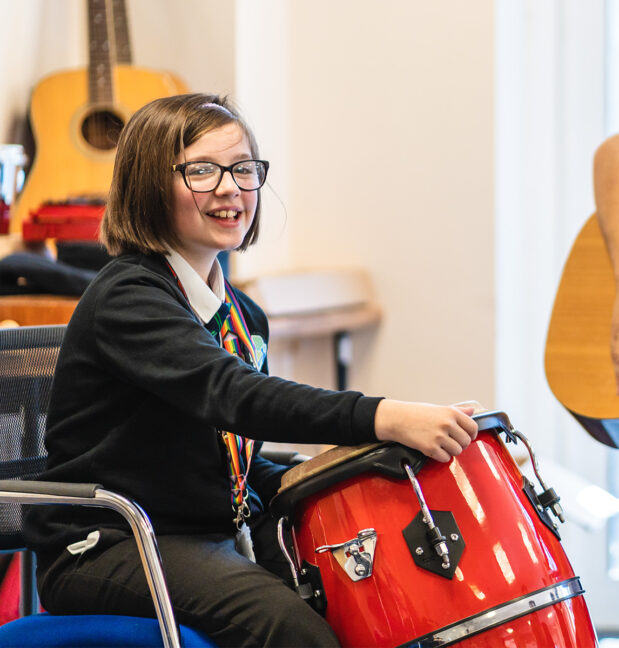All pupils are enveloped into a communication rich environment where language is encouraged and modelled. This can be informal communication with staff or other peers to formal communication in lessons with their teachers and support staff. Every adult at Northcott models the language we want our pupils to use. Every adult in the school is responsible for encouraging communication with the pupils they meet. This includes our visitors, parents, site staff, lunch staff and cleaners. Our wrap around pastoral structure, at the beginning and end of each day, with their Tutor and designated support staff, helps embed this.
Some pupils find natural conversation hard. This includes those pupils who are non-verbal, reluctant communicators, or those who find choosing the right words difficult. It is up to us to initiate communication that helps them to talk or provide an alternate method to say how they feel. Our pupils’ needs sometimes mean that they are not able to express themselves in a way that we can. Where a pupil struggles to communicate verbally, it is important that we use alternative methods of communication. This may include using visual support.
To aid social communication we have 2 buddy benches where pupils can sit to request help to play with others. These are monitored by a team of Break Time Buddies whose role it is to show other pupils how to play. We also have 2 conversation huts that pupils can sit in that again encourage talking and informal conversation. We also offer formal ELSA friendship groups for pupils who have struggled to gain or maintain friendships with others.
We also recognise that behaviour is a form of communication, which can result from something that the child finds hard to explain. It is our job to help them find the words they need using thrive language such as “I wonder” “I imagine” “I notice” as well as using positive language. This trauma informed approach helps us to encourage our pupils to share things when times are challenging. These coping strategies can then increase their resilience and confidence.
Our music lessons are also a way for our pupils to communicate. This may be by performing through song, or by using an instrument. It is important that our pupils are encouraged to communicate by a variety of means, and where traditional communication fails, we can equip them with a method to share their views and feelings.
